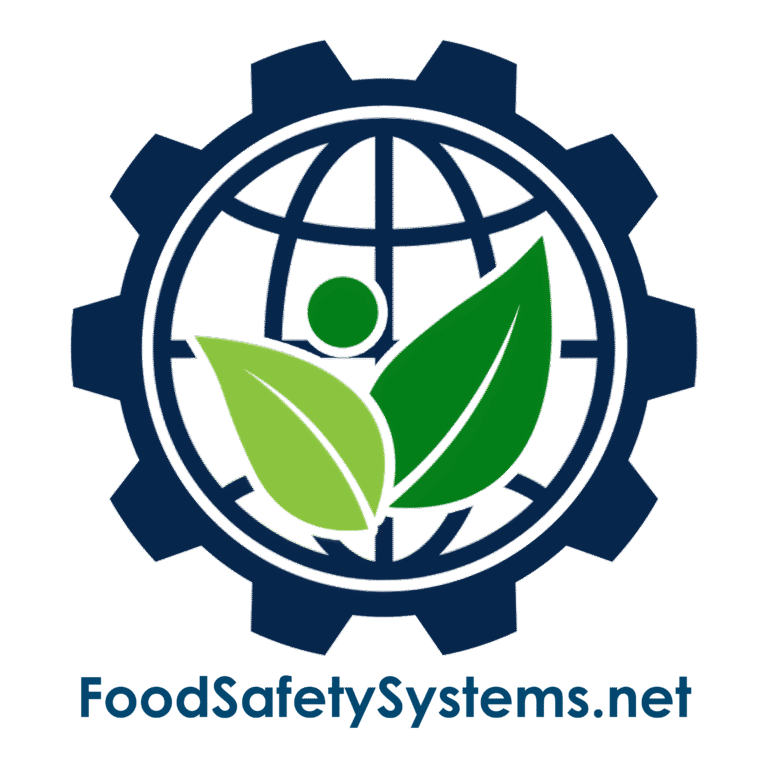Food Safety System Requirements for Agents & Brokers

Guidance Aligned with BRCGS Global Standard for Agents & Brokers
Published by Food Safety Systems | A Service by Consultare Inc. Group – A Compliance Company
Agents and brokers play a critical role in the food supply chain by ensuring the safety, legality, and quality of traded products. Compliance with the BRCGS Global Standard for Agents & Brokers is essential to meet regulatory obligations, mitigate risks, and maintain customer confidence.
This guide provides a practical checklist inspired by BRCGS requirements and global best practices. It is designed to support businesses preparing for certification or enhancing their food safety management systems.
BRCGS Agents & Brokers Compliance Checklist
1. Leadership Commitment & Food Safety Culture
✓ Establish a documented food safety policy endorsed by senior management.
✓ Define roles/responsibilities for food safety, including a designated Product Safety Team.
✓ Conduct regular management reviews to assess system effectiveness (BRCGS Clause 1).
2. Document Control & Record Management
✓ Implement procedures for document approval, version control, and retention (aligned with BRCGS Clause 2).
✓ Maintain records of supplier approvals, product specifications, and due diligence activities.
3. Supplier & Raw Material Risk Assessment
✓ Develop a supplier approval program with risk-based criteria (BRCGS Clause 3.4).
✓ Verify supplier compliance with BRCGS, GFSI, or equivalent certifications.
✓ Maintain specifications for all traded products (raw materials, packaging, finished goods).
4. Product Safety & Quality Specifications
✓ Ensure all products have clear, up-to-date specifications (e.g., allergens, microbiological criteria).
✓ Validate product safety through certificates of analysis (CoA), audits, or testing (BRCGS Clause 3.5).
5. Allergen Management (If Applicable)
✓ Identify allergens in traded products and ensure proper labeling.
✓ Implement controls to prevent cross-contamination during storage/transport.
6. Food Fraud & Food Defense Mitigation
✓ Conduct vulnerability assessments (BRCGS Clause 4.2).
✓ Implement mitigation measures for high-risk products (e.g., adulteration, substitution).
7. Traceability & Recall Preparedness
✓ Maintain a one-up, one-down traceability system (BRCGS Clause 5.2).
✓ Conduct mock recalls to test traceability and response effectiveness.
8. Personnel Training & Competency
✓ Train staff on BRCGS requirements, food fraud, and product safety (BRCGS Clause 6).
✓ Maintain training records, including role-specific competency assessments.
9. Internal Audits & Continuous Improvement
✓ Conduct internal audits at least annually (BRCGS Clause 8).
✓ Implement corrective actions for non-conformities and track improvements.
Support for BRCGS Agents & Brokers Certification
Food Safety Systems offers tailored solutions to help agents and brokers achieve compliance:
• Customizable BRCGS-aligned SOPs & document templates
• Supplier verification & risk assessment tools
• Mock recall & traceability testing kits
• Internal audit checklists for BRCGS Agents & Brokers
• Food fraud mitigation guidance
Let us simplify your compliance journey so you can focus on safe, ethical trading.
Ready to Achieve BRCGS Certification?
Let us help you build a system that’s efficient, auditable, and globally aligned.
Book Your Free Consultation Today
Request a Sample BRCGS Toolkit
Get a Custom Proposal for Your Operation
Reference Note
This content aligns with the BRCGS Global Standard for Agents & Brokers (Issue 4). For formal certification, always refer to the official standard at www.brcgs.com.
Disclaimer
Food Safety Systems is an independent provider and not affiliated with BRCGS. References to BRCGS are for educational purposes only.
Privacy Policy | Terms of Service
Powered by Consultare Inc. Group, A Compliance Company







